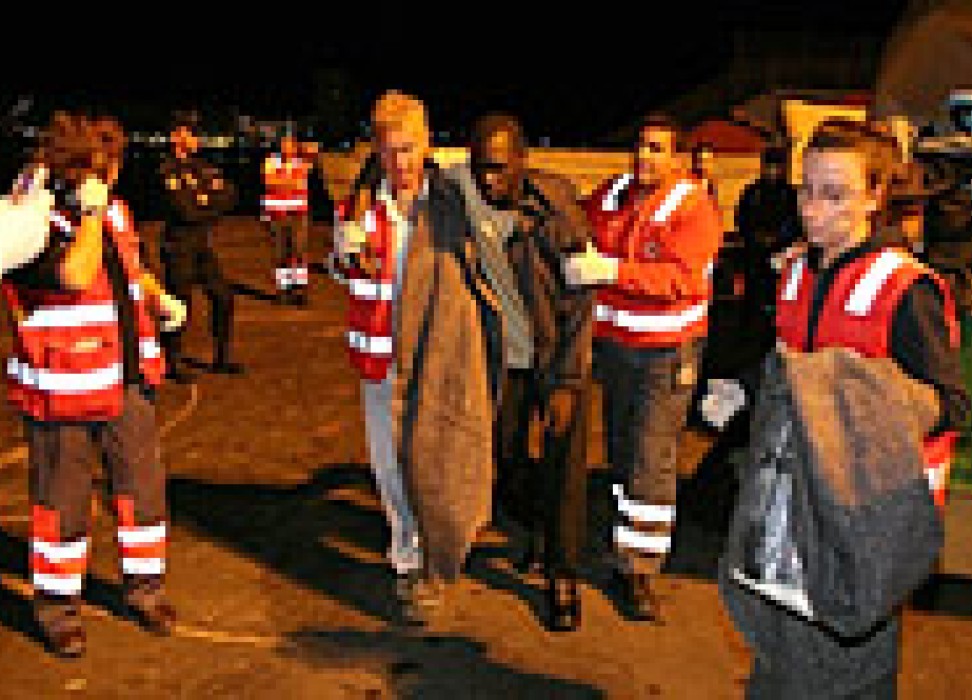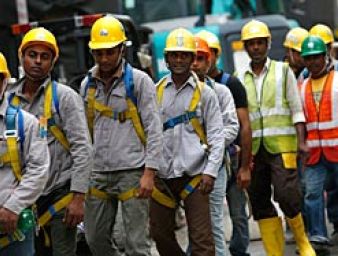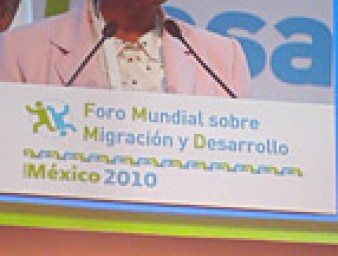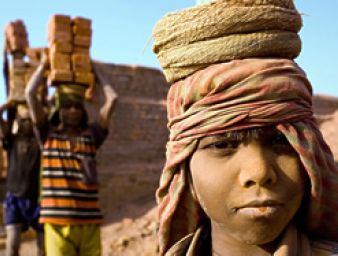Join hands to protect the human rights of all migrants
08 September 2010

All members of the Global Migration Group (GMG) have agreed to focus on the theme of the effective protection of the human rights of all migrants in the second half of this year, the period when the United Nations Human Rights office (OHCHR) chairs the inter-agency body on migration.
OHCHR has made protecting the human rights of all migrants a priority of its work. High Commissioner for Human Rights Navi Pillay last year volunteered OHCHR to chair the GMG from July to December in 2010. Her Office will also lead the GMG interaction with the fourth annual Global Forum on Migration and Development to be held in Mexico, 8-11 November.
“Through its leadership of the GMG in the coming months, OHCHR seeks to promote and mainstream a human rights approach to migration within the United Nations system, highlight key migration and human rights themes at the international level,” says Pillay.
Established in 2006, the GMG brings together 14 agencies working on migration issues, including UN agencies, the World Bank, and the International Organization for Migration.
Heads of GMG agencies will gather in Geneva on 30 September for a key meeting focusing on the theme: ‘Irregular migrants: Ensuring the effective protection and the promotion of their human rights.’
An estimated 214 million people currently live outside their country of origin. While for some migration is a positive and empowering experience, far too many migrants have to endure human rights violations, discrimination, and exploitation. Irregular migrants are particularly vulnerable, and their invisibility in society often means that they are unable to report such abuses.
“The protection of migrants is an urgent and growing human rights challenge. Governments have obligations to ensure that xenophobic violence, racism and related intolerance against migrants and their communities have no place in their societies,” the High Commissioner says.
There is an increasing global trend to frame migration policies solely within a security and border control framework. This is exacerbated by policies which criminalise irregular migrants, and subject them to administrative detention regimes which are punitive in nature and often lack adequate safeguards. Vulnerable migrants can be detained for months and even years in immigration detention, in overcrowded and unsanitary conditions.
A new study by OHCHR shows that the protection of the rights of migrant children is a matter of urgent importance. Children are locked up in immigration detention centres, denied access to essential services because of their or their parents’ legal status, and subject to the same regimes of criminalisation as adult migrants, says the study. It has been submitted to the 15th session of the Human Rights Council, which opens in Geneva on 13 September.
8 September 2010




